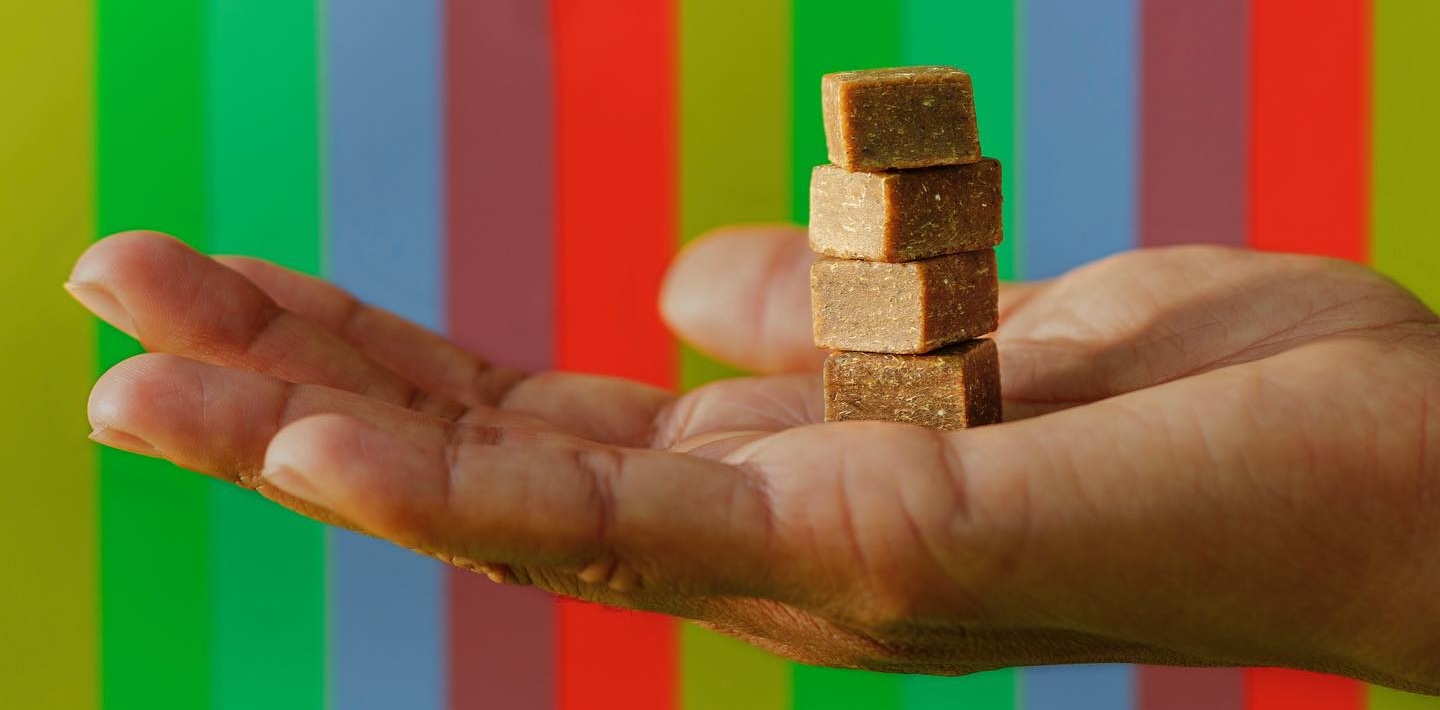In early January, a package of KA! chews and tincture landed on my doorstep. These empathogenic supplements claim to reduce stress and increase joy (or at least a more general feeling of being content). I’m not typically someone who adheres to a “new year, new you” mindset. I am, however, all for trying natural, research-backed products at least once to see if they live up to their claims.
There’s an argument to be made that we’re living in the golden age of functional foods, drinks, and supplements specially designed to make one feel better. There’s an embarrassment of riches in the broader “wellness” category. Some are dubious amalgamations of compounds that are designed to generally make you happy. Others, like KA!, are based around traditional plants.
At the heart of KA! is the South African succulent kanna. The benefits come from the natural alkaloids in the plant, including mesembrine, mesembrenone, mesembrenol, tortuosamine, and chennaine. These have various effects on the nervous system.
Kanna has been used for thousands of years both medicinally and recreationally by Khoi and San indigenous peoples as a mood and endurance booster that reduces stress, tension, depression, and anxiety. Human and animal studies have also found that, compared to a placebo, kanna positively impacts mood, sleep, attention, and memory. Still, it’s been largely left out of the wider wellness conversation in Western cultures. This is despite records by Western explorers and colonizers as far back as the 1600s describing kanna as having an “agreeable, hearty taste” and being the “greatest cheerer of spirits, and the noblest restorative in the world.”
KA! blends other plant ingredients into its chews designed to work alongside kanna, while the tincture has a salivary stimulant and uses glycerin extraction instead of alcohol extraction for a final product that reduces nausea. Both create an immediate numbing tingly feeling that’s not too different from Szechuan peppercorns.
I used them for a month in place of coffee before starting my workday and as an afternoon pick-me-up to keep my focus through work hours that are generally more of a drag. Noticing the awake-but-not-jittery feeling, I also turned to KA! on a few weekends when the idea of heading out to meet friends for a drink felt like a tall task after an exhausting week. I felt more alert for hours after each dose – similar to the feeling of content stillness I get just after a proper meditation session.
To learn more about kanna and what sets KA! apart from other wellness products out there, I caught up with KA! founder and CEO Stephanie Wang.
This interview has been edited for length and clarity.
Cool Material: Can you tell me about how you first encountered kanna and why you were inspired to start KA!?
Stephanie Wang: I discovered Kanna during my first-ever plant ceremony in 2013. While on a ceremonial dose of this life-changing empathogen, I felt my heart expand more than I ever imagined possible, accompanied by a deep sense of acceptance and belonging. For the first time in my life, I felt all the stresses of the world melt away. At a time when I know people need it the most, I felt my mission emerge to help make this plant medicine accessible to as many as humanly possible. We are ushering in the next revolution in mental health, powered by plants.
What was the inspiration behind adapting kanna into forms like gummies and tinctures? Were other delivery methods tested or explored?
First off, our Kanna Chews are not gummies, they’re chews. This is a very important distinction because gummies are usually made with sugar and heated up to anywhere between 120 to 250 degrees Fahrenheit. Our patent-pending chews are made with an innovative process that does not use sugar or heat so the ingredients don’t get degraded and remain highly bioactive. We wanted to create as clean and healthy a product as possible.



